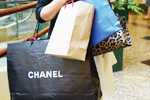Demand for Australian wine soars as nation's tastes change
Updated: 2011-12-12 10:32
By Tania Lee (China Daily)
|
|||||||||||
BEIJING - Turning 30 is cause for a big party, so when Chang Jie celebrated his 30th birthday at a karaoke bar in Beijing recently, cases of 2009 Chateau Lafite were in high demand.
"Bordeaux is best," he said without offering any justification. Then without any swirling, sniffing or sipping he sculled the glass of wine in his hand.
Many Chinese mainlanders consider Chateau Lafite to be the best French wine.
"It stands head and shoulders above anything else in terms of its brand recognition," said Campbell Thompson, an Australian and co-owner of the wine importing and distribution company The Wine Republic.
"The French are leaders in the gift-giving and corporate dining market. Australian wine just simply doesn't have the same cachet among these consumers," he added.
Despite not being able to match France's leading 50 percent market share in China, there is some good news for Australian wine producers. Overall demand for its wine is experiencing strong growth.
There are currently more than 1,000 Australian wine brands available in China and imports of Australian wine were up 29 percent in the first nine months of 2011 compared with the same period last year. Third-quarter results show Chinese mainlanders bought 2.54 million cases of Australian wine. Each case contains 12 regular bottles.
China is also Australia's fastest growing market and is the fourth largest export market by value, after the United Kingdom, the United States and Canada. It boasts the largest sales of high-priced wines - more than 4.2 million bottles valued at 600 yuan a bottle and above between September 2010 and September 2011, according to Wine Australia, the Australian government's industry marketing body.
According to data from the Customs, China is on track to importing 26 million cases of wine by the year's end, a 60 percent growth compared with last year's figure of 16 million.
Australia takes a 15 percent slice of the market, followed by Italy, Spain, Chile and the US. Chinese people's increasingly sophisticated and diversified thirst for imported spirits and wines is said to be driving this growth.
Last year, Jacob's Creek, Australia's top wine brand in China, experienced a 42 percent increase in sales assisted by the launch of its Winemarker Series and tailored marketing approach. "We have become one of the most active imported wine players in the market," said Jessie Lu of Pernod Ricard, the label's brand manager in China.
Brands such as Jacob's Creek are increasingly looking to China, which accounts for about 6 percent of volume exports from Australia and 10 percent by value.
Businessmen and officials are the biggest wine buyers.
"The second important group is made up of young white-collar workers, who are increasing in numbers very quickly in China's major cities. They are spending their own money and drinking wine with their friends because they enjoy it, and Australian wine is often the preferred choice," said Thompson.
Twenty-nine year old Qi Qinghua, an investment consultant in Beijing, said she often preferred Australian wine with her dinner.
"I love a good Riesling from Margaret River (in Western Australia) because of its crispness and fruitiness. I've also been there and like their varieties," said Qi.
Despite the boom in imported wines, Australian wineries have not indicated they will actively seek to boost sales volumes to China.
Wine Australia said the best measure of success for Australian wine in China isn't based on market share.
"There is no point increasing volume for volume's sake or trying to achieve an extra five percent market share if it erodes the position and value of Australian wines," said Lucy Anderson, director of Wine Australia's Asia branch in Hong Kong.
"We need to ensure consumers are confident to seek out Australian wines because they trust them, they enjoy the taste and they are proud of the association back to the brand, region and country," she added.
\








